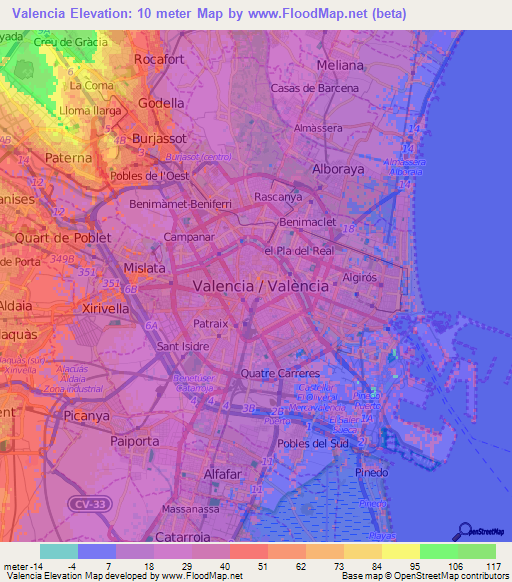-
US Election 2024 (All general discussion)Dude took all the swing states. Wtf? — frank
Yeah, it is crazy. Surprisingly, he beat the odds. -
US Election 2024 (All general discussion)I would not call it misogyny. It is just that most of your fellow compatriots might not feel good—or comfortable—about having a woman in the White House, as well as that we don't feel comfortable if we turn into a republic. These factors tend to be intrinsic in the soul and mindset of every nation more than we thought.
Hillary Clinton won the popular vote in 2016 though. — Baden
True! And still... -
US Election 2024 (All general discussion)But I don't understand why people think Trump does anything for them. — Manuel
The average American doesn't want to be ruled by a woman. I never expected their sexism to be that severe. -
US Election 2024 (All general discussion)My point is that democracy isn't in danger... it's in some ways already dead. And people need to realize this in order to rebuild it. — Christoffer
I agree. But a large number of Americans think otherwise. I was watching the news, and experts on this matter said Trump supporters really believe that if Kamala wins, American democracy and security are in danger, when they are already flawed, as are most of the Western countries. Maybe spreading fear in the eventual lack of national security and individual freedom is a successful political strategy. I can't imagine the individual rights and freedom of people like Elon Musk and WASP families at risk, but surprisingly, millions of voters do. -
US Election 2024 (All general discussion)Actually, why does anyone ever think that their elected president is going to fix their life? — Christoffer
They do not vote wishing their lives would be fixed but saved. The political slogans have mottos such as 'democracy is in danger' 'save America', 'Israel or Palestine existence', and the delicate topic of abortion and pro-life. One side of the voters thinks that if their opponents win, their lives are at risk. So do the others otherwise. -
US Election 2024 (All general discussion)Roevember is here! :fire: :party: :hearts: — 180 Proof
Are you nervous?
Do you think there will be surprises in the so-called swing states? -
Climate change denialThis is a case where blaming climate change exclusively is a problem. — frank
Consider, please, that I don't blame climate change exclusively. But I disagree with "Agree-to-Disagree" on the way he approached Valencia's floods. I think the latter is a good example of how we could blame climate change mostly. I don't get why it is hard to accept. I wanted to share the charts and the last-week catastrophe because I thought it could be seen as a good example of climate change. The 2020 chart said that Valencia had a risk of increasing the sea level by 10% by floods, and it is astonishing how that graphic nailed what would happen four years later. That's all. -
Climate change denialIs it something the EU would have to address? — frank
Absolutely. Firstly, because the EU is the only competent authority to address agriculture and farming, and secondly, it is a big problem that affects all EU zone countries equally.
I remember there was a huge strike of farmers in Spain, France, the Netherlands, Belgium, etc. because of the European bureaucracy and the great amount of taxes they needed to pay. But they turn against the wrong authority. Most of the farmers were protesting in the doors of the Ministry of Agriculture in Madrid, and barely a group of them went to Brussels. I think only a few are really aware of the power of the EU in this issue.
The next generation could come up with some genius way to remove CO2 from the atmosphere. — frank
I am optimistic about the present and future generations of people. 81% of Spaniards consider climate change, desertification, and CO2 serious issues, and we want to change the situation to better and live in a less polluted country. But I wonder whether we approached this issue too late or not. :meh: -
Climate change denialYes, frank, I am fully aware of the countless things that the stupid politicians and businessmen did in my country for the last decades. They overexploded farms and soil, reducing lagoons, riverbanks, and springs to zero. This is the problem and effects that can be seen in Andalucía and most of the south of the peninsula. I could say that it was motivated by human factors rather than weather adverse situations.
Nonetheless, this is part of the past. Farming and agriculture are mainly managed by the European Union. Yet Andalucian folks experience records of high temperatures each year. I think having 47°C in summer in Cordoba is a very serious thing that shows a constant change in our climate, thus climate change.
On the other hand, it would be unfair to say that Galicia or Aragón had poor agriculture practices, and yet they are also experiencing an important drought. My idea is that desertification in Spain is caused by climate change, but sadly, human reckless management is also guilty. -
Climate change denialBarcelona, which is part of Catalonia, also has a red dot on the map. Both Valencia and Barcelona are on the coast of the Balearic Sea. I couldn't find flood frequency data for Valencia but I did find flood frequency data for Catalonia. — Agree-to-Disagree
I was talking about Valencia, not Barcelona. Clever guy, trying to switch the topic when you feel trapped in your own views. Fine, let's talk about Catalunya and its desertification. But I think it is not worthy to keep up with this, because you would also say that the desertification in Barcelona (they are literally run of water in summer) is not a big deal, and the scientists of the European Commission and the Catalunya government are not entitled to point to climate change for that reason. -
Climate change denialThe climate is too complex for simple analysis. That's all I meant. — frank
Fair enough. I agree.
Again, why you bother with climate-denying imbeciles is a mystery. — Mikie
I know. I know. I shouldn't have answered again. But I wanted to try using 'impartial' and 'non-tax-funded climate researchers' to provide a basic fact that climate change is clearly deteriorating, deserting, shaping, and destroying some parts of my country. Although weather studies and climate charts are complex, I personally believe that it is so damn clear the evolution in each graph. Jesus is like denying real life.
The evidence is overwhelming, — Mikie
Exactly. -
Climate change denialDon't conclude climate change just because you can't think of anything else. — frank
I'm still waiting for answers on why the weather and even the surface and structure of my country have drastically changed in the past decades. As I said before, maybe climate change is not the only issue, but it is obvious that it is a feature that accelerates natural disasters.
Well, I can't think of another main reason. Most of the studies and articles point to climate change as the cause of why Spain is becoming a desert and summer accelerates desertification. Check out this amazing web page by the government of The Netherlands (@Agree-to-Disagree would say they are wrong too, and we can't trust Dutch offices when they are one of the most advanced nations in the world :lol: ).
Most of the graphics and studies show an increment in high temperatures and more frequency of extreme events. The red dots are high probability or natural disasters. Valencia has a red dot.
What are the climate change impacts in Spain?Large changes in flood frequency mean that what is an extreme event today may become the norm by the end of the century in some locations. The frequency of coastal flooding events is estimated (Fig. 4) to increase by more than a factor of 10 in many European locations, and by a factor of more than 100 or even 1000 in some locations during the 21st century, depending on the emissions scenario.

That chart was published in 2020, and look at the mess and disaster of the past week. Just four years later. They predicted it, and they nailed it. Do you still have doubts? @Agree-to-Disagree

-
Donald Trump (All General Trump Conversations Here)I see that election campaigns bring out the creative spirit of voters. :smile:
-
How does knowledge and education shape our identity?First, glad you were not washed away in the great flood. Floods cause such great loss. "Come hell (heat) or high water" as the saying goes. — BC
Thanks for your concern, friend. Appreciate it. Everything seems to be up again normally, but the number of deaths is still shocking for most of us. :broken:
Well, coming back to the topic...
The term "legal studies" isn't very clear to me. When I think of 'lawyers' I think of 'law school' and 'law degrees'. There are people who train to do 'legal work' for lawyers, but who are not members of the profession as such. Don't know. — BC
Exactly. That's what I thought too. To become a lawyer, it is obvious that someone needs a law degree. But the law degree itself is useful and goes beyond being just a lawyer. Firstly, judges and prosecutors should be included in 'legal studies' as well, but there is also a bubble (chart) saying public administration. Where should judges and prosecutors be located then?
On the other hand, I wonder what the requirement is to represent the state of the U.S.A. legally regarding legal international affairs or conflicts. We have a special bureau called 'Abogados del Estado' (State of Spain Lawyers). They are considered part of the public administration and not lawyers per se. I remember that Spain and the USA had a trial on the civil rights of a boat*. Spain was represented by Abogados del Estado on American soil. But who represented American sovereignty? I guess not a random lawyer but a legal public expert from the Bureau of Justice.
*Plot twist: We won the trial. It was a big surprise here because we didn't expect to win in the U.S. Supreme Court. -
How does knowledge and education shape our identity?That chart surprised me for two reasons:
1) Why does psychology have negative return on investment? I thought psychology was very important in the USA and since the American government doesn't provide medical attendance with taxation but with insurance, it surprised me that it is in negative. Nursing and health professions return on investment is $195K. Why is psychology not located in the latter?
2) Why are legal studies separated from public administration and social services? I would put them all inside the bubble of social sciences. Law is considered a degree of social science and public administration here. -
The purest artistic side of the sunsetNovember 2.
Fifty nine days remain until
the end of the year.
The sun is set on the horizon
and I remember Valencia.
Sweeter grapes than the ones
of my kitchen I can’t imagine of.
I got them from a poet from Paiporta.
He said—I now feel nostalgia for him—
But he said grapes like these are only
grown near Albufera.
I put my coat on
because it is cold outside.
I start to walk until I arrive at the sunset,
remembering Valencia and
the poet from Paiporta.

-
Currently ReadingAfterlives by Abdulrazak Gurnah.
African literature is unique and pure. Gurnah only focuses on Tanzania and Zanzibar, because these are the places where he was born and raised before moving to London.
I read 'Paradise' the last year and it was outstanding. What I've read thus far, seems to have the same narrative line. A group of helpless young people who had the bad (or good) luck—depending on how we interpret it—of experiencing the beginning of African decolonisation.
I always recommend reading Gurnah. A deserved Nobel laureate and a nice person. -
Climate change denialMy point is that "scientists" are not justified in saying that climate change made the 2024 Spanish floods worse. — Agree-to-Disagree
We are having records of high temperatures in summer and records of floods in autumn each year. Check it out, and you will see. If climate change is not making the weather worse and adverse here, what is the main cause then? By the way, I guess you could accept that climate change is a factor to take on regarding the last and coming floods. People around Valencia were interviewed—not scientists—and they said: We are used to floods in Valencia, but we can’t remember of a worse example than this year. It seems like each year the floods are more violent and destructive than the previous. They are literally experiencing the consequences of climate change. -
Climate change denialWhat is your point of sharing the history and dates of Valencia's floods? We are already aware of the continuous floods in that area each year. It seems like you claim that the DANA always happened and was not caused by climate change.
My point goes deeper than this. Before the reference to Valencia natural disaster, you claimed that some folks—yourself included—don't take climate change seriously because of the behaviour of some tax-funded people and organisations. I agree. Maybe they are not facing the issue correctly. Then, I shared the 'before and after' picture of the Albufera. I think it is clear the impact of adverse weather in that region. Whether COP29 is effective or not, it is not relevant to the fact and evidence that climate change has changed the structure and surface of my country. First the 1957 Valencia catastrophe and now these floods. Did you know that because of this, the government has to build literally new roads and rails to Madrid? I think we have to take climate change seriously, at least here. -
Climate change denialThey’ll keep their heads in the sand till the bitter end. — Mikie
:up:
That's precisely what surprises me the most. Climate change deniers can suffer the consequences of adverse weather, but they seem to not care anyway. If they are trapped in a garage flooded to the top they would think: "Well, this just happens. It is normal. I am just having bad luck today." -
Climate change denialPeople might start taking climate change more seriously if climate scientists "walked the walk", and didn't just "talk the talk". — Agree-to-Disagree
Shouldn't we take climate change more seriously from now on after the floods in Valencia (Spain)? I don't know where you are from, but I hope the politicians—and other responsables—of my country might start to take this crisis—because climate change is a big crisis—more seriously. Everything is destroyed; more than 160 people died. I can't accept an argument that this was a normal natural disaster. After experiencing the floods, someone has to be very mad to keep denying climate change, at least in the context and reality of Spain. Now it is time to convince people around the globe. Please don't focus only on tax-funded organisations or politicians. There are more out there who work with honesty and want to avoid the impacts of DANA, hurricanes, tornadoes, etc.


-
Israel killing civilians in Gaza and the West BankIsraelis celebrating Spain flood death toll…
 [/img]
[/img]
If we were not members of NATO, we would already have been bombed by spangled-minded Netanyahu; that’s a given.
Hey, @BitconnectCarlos. Look at the representatives of the nice and helpless nation of Israel. Because we should have pity on them! Otherwise, we deserve to be punished by ‘karma’ and God’s mercy and heaven, etc., and the rest of nonexistent things, but what could we expect from an occupier and an artificial nation like Israel? But hey, Carlos, didn’t you say that they are cool people, but they are just a threatened nation or something? What do you say now? Tit for tat, right? If they cheer about the deaths of Spain floods, I will cheer when a Lebanese or Gaza brother takes Netanyahu or another Israeli hateful ass out, right? Do you understand my thoughts on that artificial country now? Because it seems we only have to be empathetic with Jews. -
Backroads of Science. Whadyaknow?As I always say to Jehovah's Witnesses when they ring my home: show me your Crocoduck if you truly want to brainwash me!
-
Where is AI heading?It is cool, indeed. But if you gaze at the eyes of the women in each painting, it is very clear that it was AI-made. I wonder what would happen if we applied that tool to Dalí's paintings. It would be very interesting to see and the closest point to experiencing a trip without drugs.
-
TPF Haven: a place to go if the site goes downI would hope if and when there is anything substantial to report, then Jamal will notify TPF members. — Amity
Yes, absolutely. You—and the rest of TPF members—will be notified when there is a substantial report. But I thought it was a good idea to provide the link to Discord to all of them who could be interested in the discussion on the other platform.
We have now been upgraded to the medium plan, so this shouldn't happen again. — Jamal
Great! Thanks! :up: -
TPF Haven: a place to go if the site goes downHere we go again... We already have discussed it on Discord, but since many folks—most of them― don't have this platform, so maybe some of you were unaware of what was going on. Here you have the link to the site and read what we discussed: TPF Haven. Shoutbox 2.0
-
Climate change denialWash in a Polish creek. Isn't that what you guys do? — frank
I remember washing myself and clothes in a creek when I was a toddler. While it was enjoyable to feel the stream flowing through my hands, the government decided to outlaw this practice due to water pollution and a lack of water storage. I agree, and it is maybe one of the few things the government of my country did rightly in the past decades. It seems an innocent practice but can scare the fish off and drop bleach accidentally. By the way, why does the creek need to be Polish? There are cool and pure creeks in the Netherlands, where maybe @Tzeentch takes a bath often. -
Climate change denialI don't run a car and walk a lot. — Baden
I do the same. I always try to go by walking to places. If it is really away from my home, I use public transport. Both trains and buses have zero emissions and are low-polluting. The price is €21.80 monthly. I have never owned a car, and I think I will never do so. Apart from the costs and pollution mainly caused by traffic jams, I think it is an evil machine. It is dangerous, and I often thought that some car brands designed the model to save the car before the driver or pedestrian. -
US Election 2024 (All general discussion)Puerto Rico is garbage... — Paine
Unfortunately, most Americans regard everything about Hispanic countries as 'trash' or 'poor.'
Now it makes sense. I now understand why some representatives of Puerto Rico submitted a petition to the Congress of Spain requesting the chance of being part of the kingdom again. I can't see it possible, honestly. But Puerto Rico —and Cuba— should never have separated from Spain. We feel like they are naturally part of us, and we have huge connections with them culturally. I don't understand why in the 1898 war Washington attacked us with the aim of freeing them if they will be treated that badly by the same country in the future.
They can't vote in general estados unidos elections, but they could when they were part of Spain. Benito Pérez Galdós —who closely won the Nobel Prize of Literature— was a congressman elected by puertorriqueños. It was a hoax the 1898 war. -
Welcome to The Philosophy Forum - an introduction threadHey there, chubby smoked salmon, great piece of human existence.
My name is Javier. I am 27 years old. I was born in a shed, near a fjord. My childhood was basically based on two main distractions: painting my mother, father, sister, dog, and mice of my house on canvas, and fishing herrings to eat them with lemon later on. What sparked my interest in reading philosophy? Well, this is quite embarrassing, but everything started when I was coming from my school, and then I saw my father tearing and throwing tiles off the roof :rofl: . I felt scared, and I questioned myself whether that was determined by fate or not. Cool and ropey people, my family. I left them some years ago, and I flew out to Wabash (U.S.A.), where I work as a fishmonger, selling scampi but not herrings. I miss the herrings of my cosy fjord! :sweat:
Nice to meet you all. I hope we could have interactions in the future.
Here is additional basic information if you want to contact me and buy some scampi:
javixu885atgmaildotcom
Mercado municipal de Puente de Vallecas.
Calle De Martínez De La Riva, 4, Madrid, ES 28053. -
Autism and LanguageWhat is in the video? — I like sushi
It is a great video. Basically, Mel Baggs shows us the way of communication by autistic and other cognitively disabled people. Instead of trying to learn the way they try to communicate with the world, we always labelled them as non-communicative. Mel claims that she smells things, looks at things, hears things, etc. But the way she answers to those stimuli is not the same as the standard, so most of the people would claim that she doesn't really interact with the world, which is false. The video was uploaded seventeen years ago, and some features changed to better. But when Mel did that video, most of the people considered her non-human just for the way she used communication. -
Can this headline be answered by the word "no"?Folks, I think Michael was not expecting replies at all because the headline is not worth replying!
This is the point—or even solution—to this puzzle. -
Beginner getting into PhilososphyI think it’s more important to get acquainted with the subject of philosophy than to start interacting on forums. — Wayfarer
Why not do both at the same time? Since joining TPF for the first time, I've learnt a lot and discovered new authors on a wide range of topics, such as when you suggested I read Alan Watts. For a beginner, I believe there will never be a suitable time to join a forum and engage in argument. Philosophy is complex, and I think it cannot be learnt in our own way. -
Beginner getting into PhilososphyStart reading an introductory book for philosophy—like the one you quoted by W.T. Jones—is obviously important. But since the OP seems to have thoughts like 'suffering is inevitable' I guess it will help him to read Kierkegaard or works related to existentialism rather than generic topics that could make him feel bored.
Philosophy is very vast and deep. I am more interested in reading books about dreams/awareness than logic, although these are philosophy. @AlienVareient needs to set his preferences. :smile: -
On Fosse's Nobel lecture: 'A Silent Language'Hey, @Metaphysician Undercover and @Ø implies everything. I am reading Fosse again. "Septology" consists of seven different books, but it is interesting to see how the characters of other novels also appear here. I just started with the first volume, and I know this will be a long run and effort when there are six more books left. Yet it is a worthy author to take into account and debate about his works. If you do not mind, I would like to share with you the following paragraph:
Ales is sitting in the lounge. He feels cold and tired. Ales thinks it is a good idea to go to the kitchen and drink alcohol. After that, he will start to turn off all the lights in the house slowly. Then he will sort the house if it is necessary. After all of this, Ales will go to the sea, and he will join the waves and walk until he reaches the profundity. But why does Ales think in all of this? Why does Ales want to join the sea and the waves? He was just sitting in the lounge, and he thought it was a good idea to drink alcohol to stay warm and sort the house. But it is impossible to get rid of the idea of going to the sea and joining the waves.
Note: Maybe Ales is actually a woman. @Ø implies everything could say us whether Ales is a male name or not.
I don't know if you remember it guys, but we talked about how Fosse used silence and pause regarding death. I don't know to what extent Ales committed suicide, because everything appears to be a blurry idea in his mind. Perhaps Fosse is showing how Ales wants to kill himself, but this could not be a spontaneous idea, and this is why he feels overwhelmed by these ideas. Nonetheless, it is interesting why Ales wants to turn off all the lights and sort the house. Is this a reference to silence? Pause maybe? -
Currently ReadingAh, I get it now. Fantastical nonsense also refers to the crap written in a book by cliché authors. Sorry, I misunderstood you.
-
Currently ReadingNot recommended if you are seeking some fantastical nonsense. — I like sushi
Why do fantastic themes have to be senseless? Maybe some readers want to read facts and historical events with accuracy, but I would not call the Iliad —for example— a nonsense fantasy tale. -
What Are You Watching Right Now?@T Clark
Clarky, it has been a while since the last time I shared with you a film recommendation. Today is Friday, so it is film fest in my home. I would like to suggest you watch "Burnt by the Sun" by Nikita Mikhalkov. It is a post-Soviet era film. I watched it in September, but I want to watch it again because—in this long piece— there are a lot of beautiful details that I might have lost the first time.
I am aware that it received well critical reception back in the 1990s, and maybe you already watched it... but I thought it was a good idea to let you know!
-
Currently ReadingThen I realized it has a double meaning: Morel as he appears has been invented too, in a sense (am I remembering it correctly?). — Jamal
Yes, you remembered it correctly! -
What jazz, classical, or folk music are you listening to?@Jamal I found on YouTube the songs that were constantly playing at the museum. I think these are the best versions and fit with the ambient written by Casares. :smile:
javi2541997

Start FollowingSend a Message
- Other sites we like
- Social media
- Terms of Service
- Sign In
- Created with PlushForums
- © 2026 The Philosophy Forum